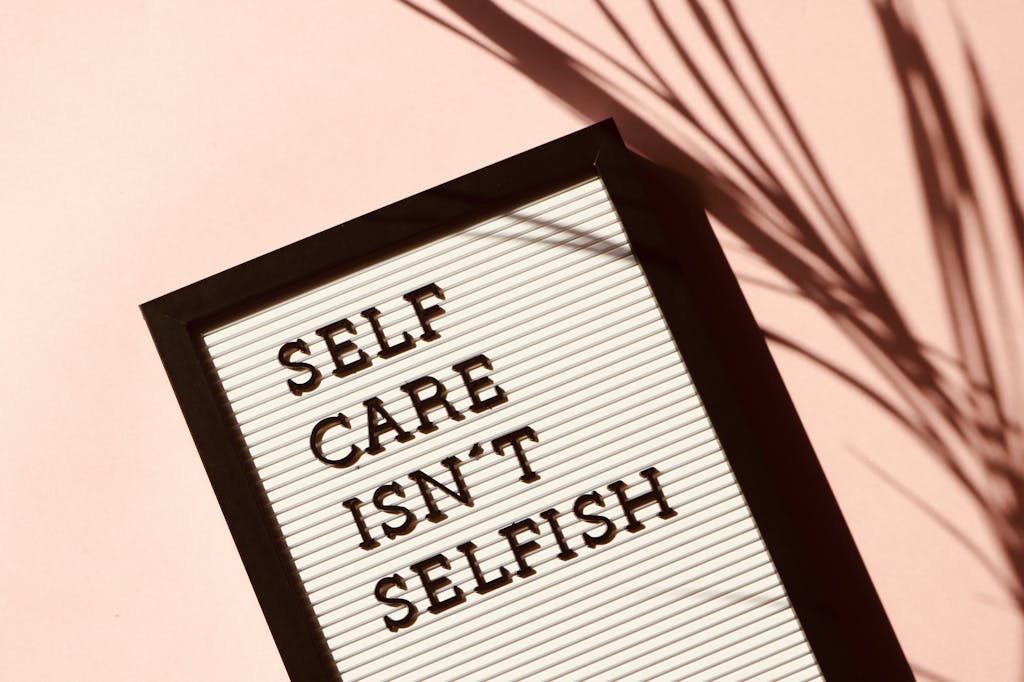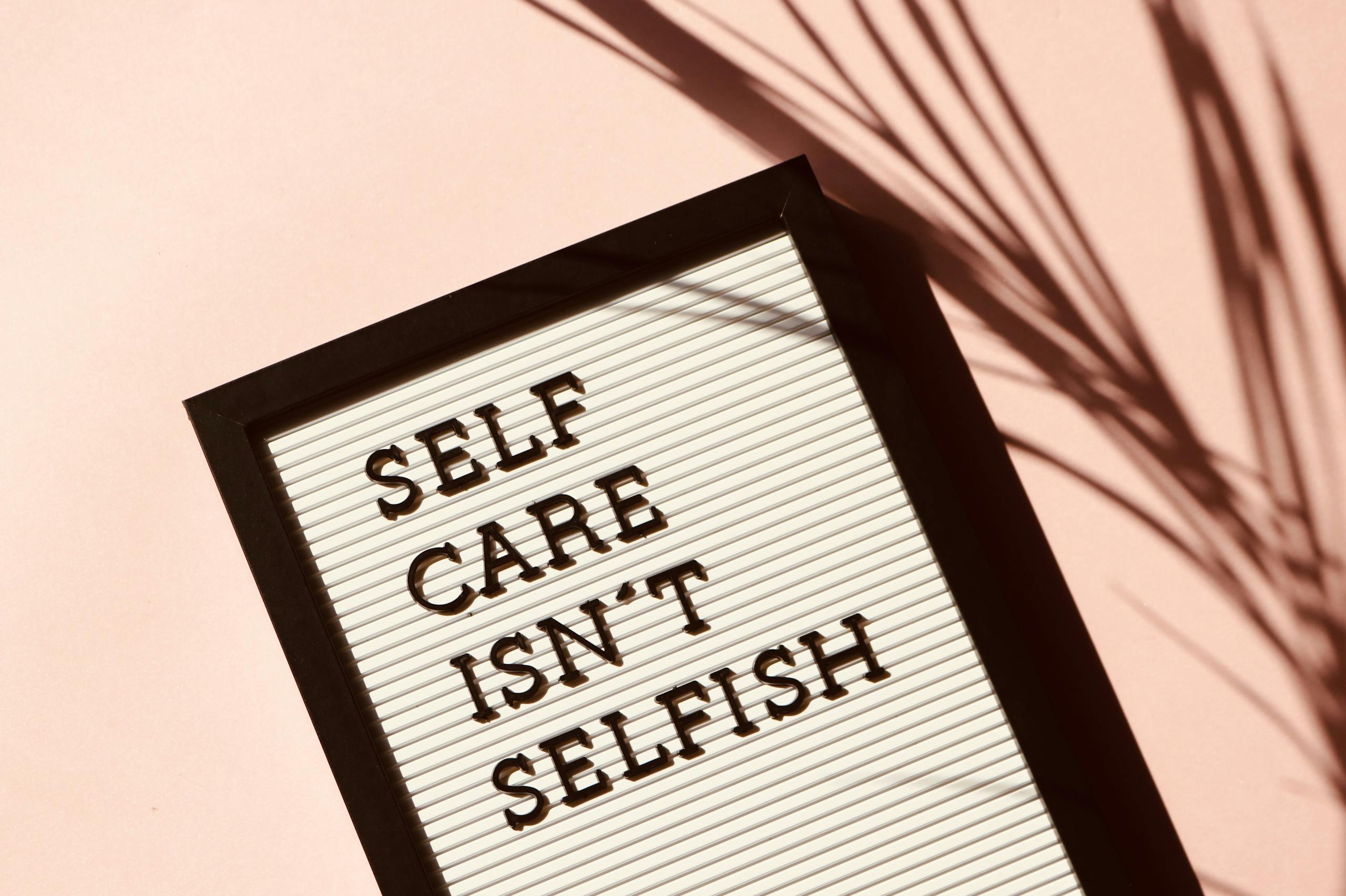5 Self-Care Routines to Improve Your Mental Health
Introduction
In today’s fast-paced world, maintaining mental health can be a challenge. The importance of self-care has grown significantly in recent years as a cornerstone of mental wellness. Self-care routines are intentional actions individuals take to nurture their physical, emotional, and mental well-being. These routines are essential not only for stress management but also for improving overall mental health. In this article, we explore evidence-based self-care strategies and how they can positively impact mental health, drawing from the latest research to ensure credibility.

The Importance of Self-Care for Mental Health
Self-care is much more than pampering or indulgence; it is a comprehensive approach to looking after one’s emotional, physical, and mental well-being. According to the American Psychological Association (APA), self-care is fundamental in mitigating the effects of stress, reducing the risk of burnout, and promoting resilience.
Neglecting self-care can lead to various mental health issues, including anxiety, depression, and chronic stress. Research suggests that individuals who engage in regular self-care practices are more likely to maintain emotional balance and mental health, as these routines act as buffers against external stressors.
5 Self-Care Routines to Improve Your Mental Health
1. Physical Self-Care
Taking care of the body plays an essential role in mental health. Physical self-care encompasses activities like exercise, sleep, and nutrition, all of which have been scientifically linked to improved mental health.
- Exercise: Numerous studies have shown that physical activity boosts mental health by releasing endorphins, also known as “feel-good” hormones. A meta-analysis of randomized controlled groups suggests that exercise significantly reduces symptoms of depression and anxiety.
- Sleep: Sleep hygiene is another vital aspect of self-care. Inadequate sleep can exacerbate stress and negatively impact mental health. Research indicates that adults who get seven to nine hours of sleep per night have better emotional regulation and cognitive functioning.
- Nutrition: A healthy diet is crucial for mental well-being. The Mediterranean diet, rich in fruits, vegetables, whole grains, and omega-3 fatty acids, has been associated with reduced symptoms of depression and anxiety.
2. Emotional Self-Care
Emotional self-care involves actions that help individuals process and express their feelings healthily. This type of self-care is vital for building emotional resilience and maintaining a balanced mental state. A few key strategies include:
- Journaling: Writing about one’s thoughts and feelings is a powerful tool for emotional self-regulation. Studies show that expressive writing can reduce symptoms of depression, anxiety, and stress by helping individuals process difficult emotions.
- Setting Boundaries: Learning to say no and setting boundaries is critical for emotional self-care. Research supports that individuals who set clear emotional boundaries are less likely to experience burnout and stress.
- Seeking Support: Reaching out to loved ones or a mental health professional can provide emotional relief. Research highlights the importance of social support in reducing the risk of mental health disorders.
3. Mindfulness and Meditation
Mindfulness practices, including meditation, have been extensively researched for their mental health benefits. Mindfulness is about staying present and aware in the current moment without judgment. Numerous studies indicate that regular mindfulness meditation reduces stress, anxiety, and depressive symptoms while improving overall well-being.
- Mindful Breathing: Focusing on breathing is a simple yet effective mindfulness technique. It helps calm the nervous system and promotes relaxation. A study published in the journal Frontiers in Psychology (2017) found that mindful breathing exercises reduced stress levels and improved emotional regulation.
- Body Scan Meditation: This form of mindfulness meditation involves paying attention to different parts of the body, from head to toe. The practice encourages relaxation and helps reduce physical tension, which can lead to improved mental health outcomes.
4. Cognitive Self-Care
Taking care of one’s mind is just as important as caring for the body and emotions. Cognitive self-care involves stimulating the brain and engaging in activities that promote mental agility.
- Reading and Learning: Staying mentally active through reading and learning new skills can help sharpen cognitive function. Research shows that intellectual engagement reduces the risk of cognitive decline and may protect against mental health issues.
- Problem-Solving Skills: Actively engaging in problem-solving tasks can foster resilience and self-efficacy. Cognitive-behavioural therapy (CBT) techniques that focus on identifying and changing negative thought patterns have been proven to reduce anxiety and depression symptoms.
5. Social Self-Care
Human beings are social creatures, and maintaining healthy relationships is crucial for mental well-being. Social self-care focuses on nurturing meaningful connections and cultivating a supportive network.
- Spending Quality Time with Loved Ones: Research underscores the positive impact of social interaction on mental health. People with strong social support systems are less likely to suffer from depression and anxiety.
- Joining Support Groups: For those dealing with specific mental health challenges, joining a support group can provide emotional comfort and practical coping strategies. Studies have shown that peer support reduces the risk of mental health relapses and enhances emotional well-being.
Conclusion
Incorporating self-care into daily life is essential for maintaining mental health. Each person’s self-care routine may differ depending on their needs, but the key is consistency. Start small and gradually build habits that nurture your mental, emotional, and physical well-being. Whether it’s mindful meditation, exercise, journaling, or spending time with loved ones, the goal is to create a routine that fosters resilience, reduces stress, and promotes mental wellness.
As mental health awareness continues to grow, it is crucial to remember that self-care is not selfish—it is necessary. Implementing these evidence-based strategies can improve not only mental health but also overall quality of life. When applied consistently, these self-care practices can help individuals thrive in today’s increasingly stressful world.
References
APA (American Psychological Association). (2018). The Importance of Self-Care.
Smith, P. J., et al. (2015). Physical activity and mental health: Correlations between exercise and improved mental well-being. Mental Health Review Journal, 21(2), 91-103.
Buman, M. P., et al. (2016). The effects of sleep on mental health: A comprehensive review. Journal of Sleep Research, 25(1), 42-50.
Berk, M., et al. (2016). Diet and mental health: Evidence from the Mediterranean diet. Nutritional Neuroscience, 19(9), 569-578.
Pennebaker, J. W. (2014). Expressive writing as a therapeutic tool. Journal of Clinical Psychology, 70(9), 868-877.
Brown, K. W., & Ryan, R. M. (2017). Mindfulness-based interventions and mental health outcomes. Annual Review of Psychology, 68, 711-736.
Bratman, G. N., et al. (2015). The mental health benefits of nature: Research and evidence. Proceedings of the National Academy of Sciences, 112(24), 8567-8572.







